One of L.A.’s oldest Mexican restaurants needs a miracle to stay on Olvera Street, owners say
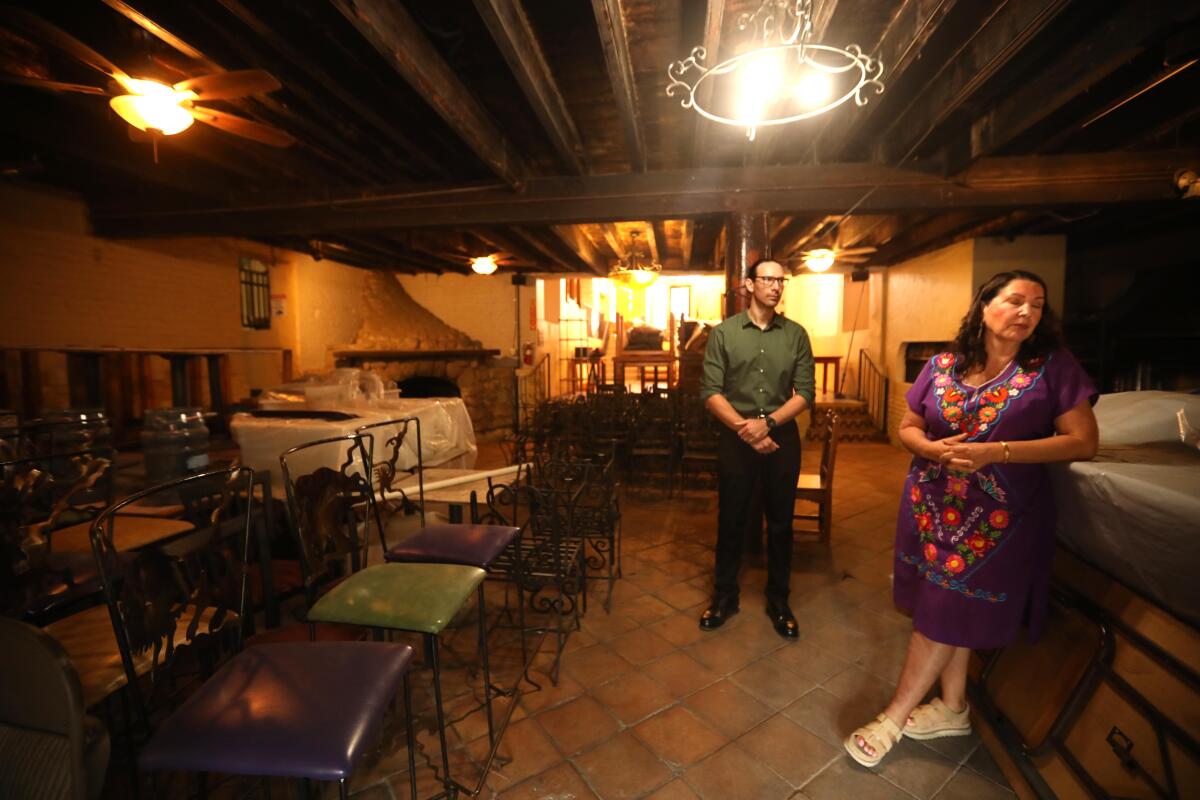
- Share via
The future is uncertain for one of the oldest Mexican restaurants in Los Angeles.
A city commission ordered the current owners of La Golondrina Cafe on Olvera Street to pay over $242,000 in back rent and fees in the next 30 days or leave.
Bertha Gomez and her son, David Gomez, became the owners of the restaurant in 2022, but encountered multiple problems before they took over the business or opened the restaurant.
On Thursday, they were given notice by the city commission to pay the back rent. City officials could not say whether this was the first time a vendor was ordered to leave Olvera Street, but many longtime merchants said that the commission has worked with vendors in the past to resolve issues.
“We were hoping for a miracle,” David Gomez, 36, said after the commission meeting.
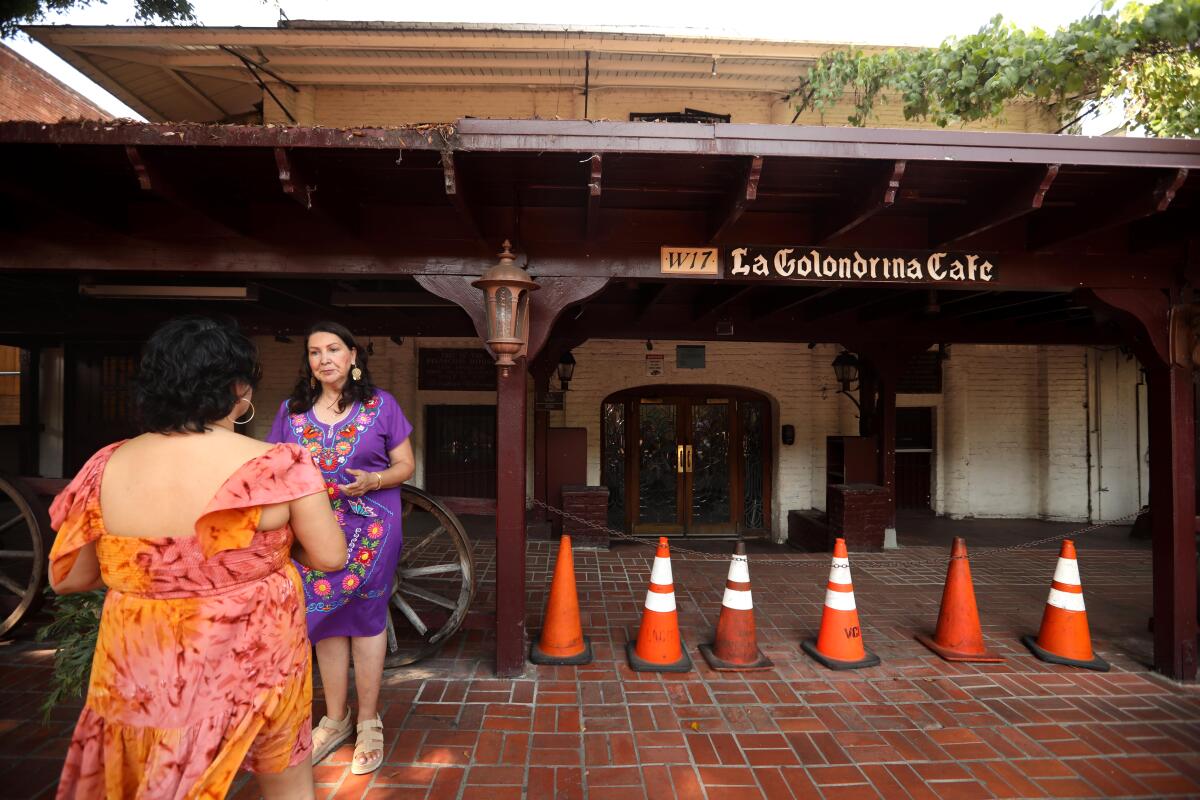
“It’s so discouraging,” Bertha Gomez, 62, said. “Because they only gave limited information. It came down to: ‘Did they pay rent?’”
After they were named the new owners, the Gomez family claim they encountered a major plumbing problem that prevented them from opening. The city told them that all repairs inside their building were their responsibility — even if their building was built in 1857 and is known as the oldest brick building in the city.
Sewer repair would cost $90,000 based on an estimate the Gomezes received from a contractor, according to a civil lawsuit they filed in May against the city for breach of contract.
While the charm of Olvera Street lies in its illusion as an old Mexican puebla, much of the upkeep lies with the vendors and merchants, who argue the city holds them to unacceptable standards.
“The idea of holding us to a specific contract is wonderful from the city’s standpoint, but most of the city’s contracts are with 10-year-old buildings, 20-year-old buildings, 30-year-old buildings. But our buildings are over 100 years old,” Valerie Hanley, co-owner of the Casa California gift shop, said during the commission meeting. “We are unlike anything else in Los Angeles. The city should understand that and it should be able to work and help preserve this place.”
Others on Olvera Street are familiar with the Gomez’s situation.
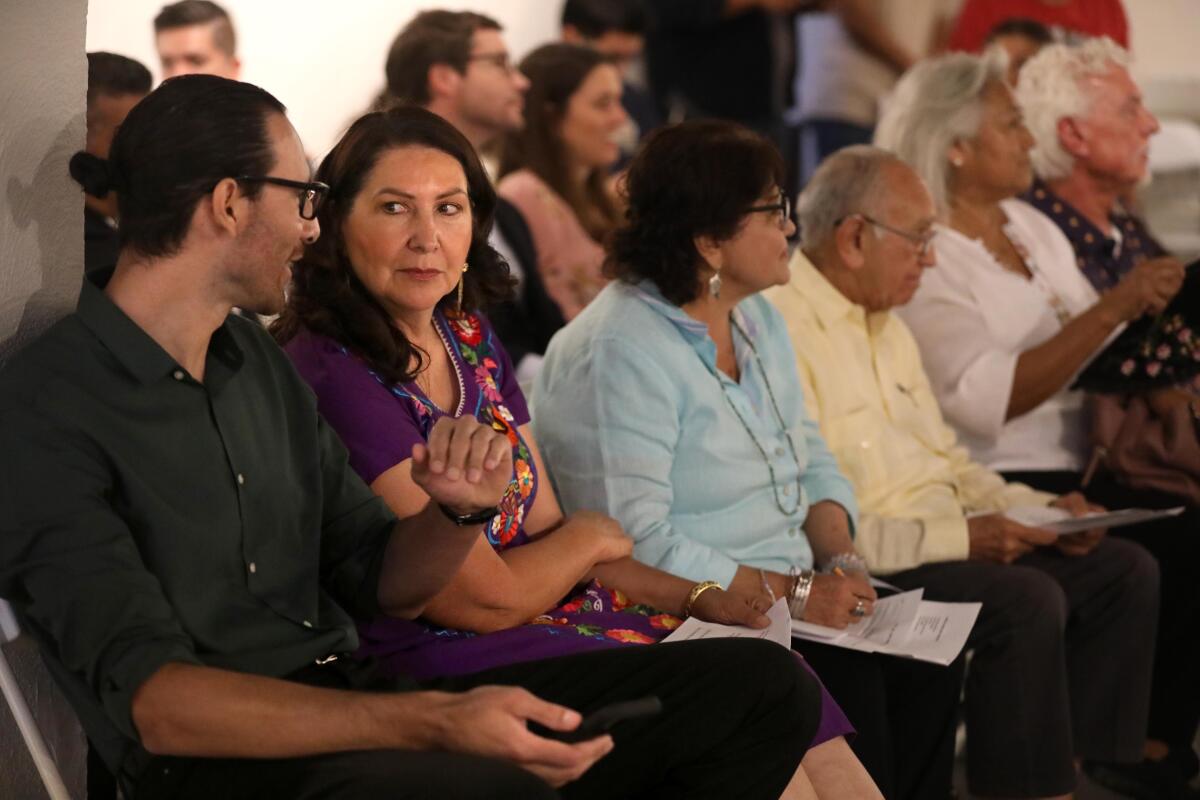
Diana Guerrero Robertson’s family opened the taquito stand Cielito Lindo in 1934 and Las Anitas Cafe Mexican Restaurant in 1947 on Olvera Street. For years, the city blamed her staff for clogging the pipes with grease and causing a sewage backup. But she maintained that it was an issue with the sewer lines feeding into the Italian Hall building, which was built in 1908 and where the restaurant sits on the basement floor.
Eventually a plumber confirmed that there was a tree root blocking the sewer line and the city agreed to move ahead with repairs, but said it would take six months to fix, according to Guerrero Robertson.
“It’s always at our expense,” she said. “It’s always you gotta prove it’s not your fault. And even if you prove it, they don’t want to do it and then you’ve got to fight them.”
There was one recent exception the Gomezes point out in their lawsuit, when the city repaired a major sewer backup at the Italian Hall in April 2022. The building houses multiple businesses, but the Gomezes claim that the city covered the costs.
In happier times, the facade at La Golondrina Cafe was flanked by hungry patrons serenaded by mariachis.
Rocio Mendoza, a former patron, recently walked by the restaurant and was upset to see it closed.
“This was the place where I would bring my out-of-town friends, to show them a side of the city that you can’t find anywhere else,” Mendoza said, herself a singer with the Bolero trio Tres Sols. “I would come to eat and find myself singing with the mariachis. It was a magical time.”
Even though the restaurant is closed, David Gomez has heard many stories from people whenever he opens the front doors.
“People want to share how they had their first date here or how they proposed here,” he said. “There’s so much history to tell.”
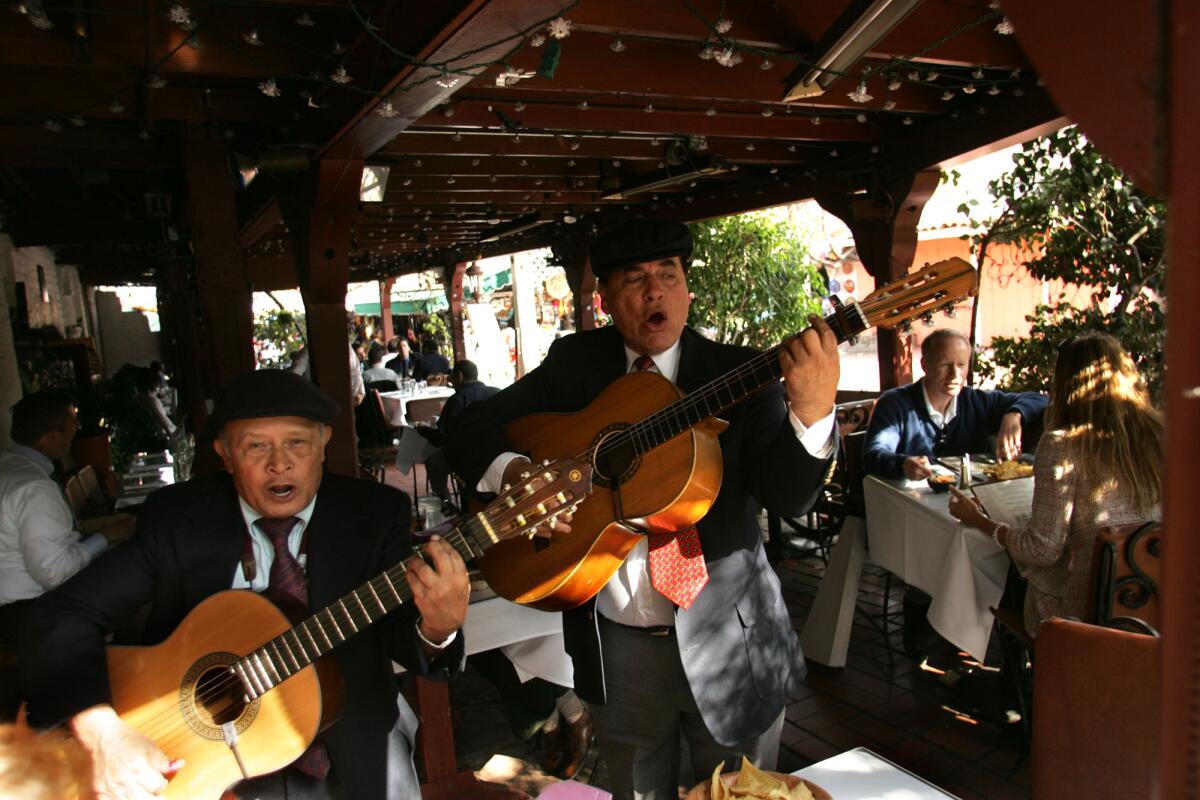
Consuelo Castillo de Bonzo opened the restaurant in April 1930 after she arrived from Aguas Calientes, Mexico. She was invited to start her business in the budding Olvera Street. Vivien Bonzo, Consuelo’s granddaughter, worked in the restaurant as a teenager and for decades watched as her family’s restaurant became an institution where customers could get homemade tortillas, pepino margaritas and chile colorado.
But the restaurant closed its doors in March 2020 in the early days of the pandemic when COVID-19 restrictions limited how restaurants could operate. Bonzo wanted to sell her family business.
“Olvera Street had been on the decline for many years,” Bonzo said. “I’d say it’s reached a fever pitch now, but nevertheless with COVID I just felt the future wasn’t very rosy.”
Vendors on Olvera Street are restricted on who can take over a business under their agreements with the city. Bonzo could transfer the restaurant to a family member or to another Olvera Street merchant.
David Gomez’s father, Jess Gomez, worked on Olvera Street as a teenager at his uncle Rudy Valencio’s candy stand, which opened in 1952. Eventually, Bertha and Jess Gomez took over the colorful candy stand just down the lane from La Golondrina Cafe. David Gomez and his family frequently ate at the restaurant and multiple generations of his family worked at the candy stand.
When Jess Gomez died, the family held a reception at La Golondrina Cafe after his funeral service. While Bonzo agreed to transfer the business to the Gomez family, she claims the city held up the transfer multiple times. In their lawsuit, the Gomezes claim union officials with Unite Here Local 11, who represent hospitality workers and former staff at the restaurant, interfered with the transfer process.
The district that represents Olvera Street, El Pueblo de Los Angeles Historical Monument, is operated like a city department. The Gomezes claim that on more than one occasion Councilman Kevin de León and other city officials stalled the process over what they called a labor dispute, even though the Gomezes had not officially taken over the business.
Union members later protested outside the closed restaurant when the Gomezes declined to agree to any contract agreements. While the transfer from Bonzo to the Gomezes was approved in December 2021, Bertha and David Gomez claim they were not notified until February 2022.
After the transfer was approved, the union then asked the U.S. Small Business Administration to investigate how Bonzo spent her Paycheck Protection Program loan, which was granted to small business owners during the pandemic, which she sees as a form of retaliation.
Unite Here Local 11 did not respond to requests for comment. De León’s office declined to comment due to the pending litigation, but said that during the pandemic the councilman authored council motions to waive merchant rent payments and fees, but that ended before the Gomezes took over the restaurant.
In a strange twist of fate, Olvera Street was the invention of Anglo city boosters who wanted to sell tourists on the myth of the old Spanish and Mexican past, said Eric Avila, professor of history and Chicano studies at UCLA. But over the decades, Mexican immigrants used Olvera Street for public celebrations, holidays and protests. It became a destination for opportunities and success.
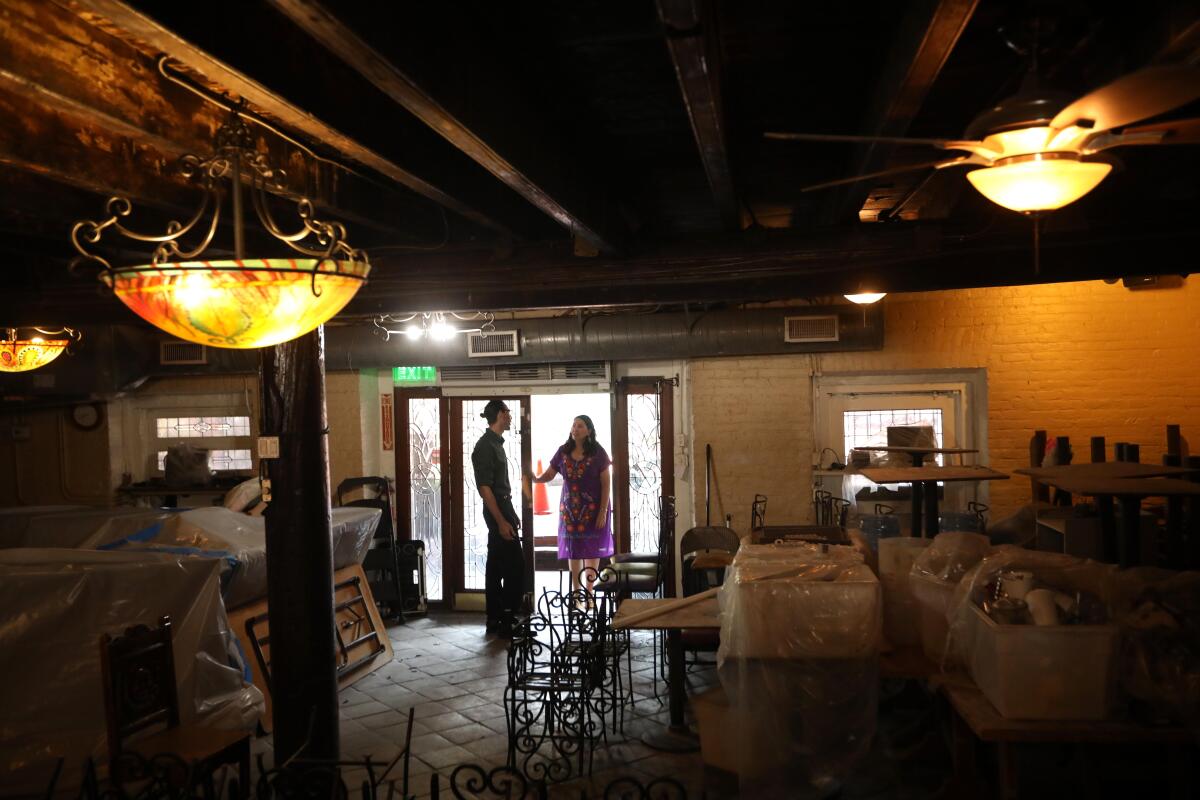
“It’s become appropriated by the Mexican immigrants and Mexican Americans of Los Angeles. In other words, they have kind of made that space their own,” Avila said.
He likens the unstable future at La Golondrina Cafe to the mural “América Tropical” painted by Mexican muralist David Alfaro Siqueiros on Olvera Street in 1932. The mural features a grand temple scene with a crucified indigenous peasant at the center, symbolizing the treatment of American Indians at the hands of Spanish colonizers and American imperialists.
The image scandalized city boosters at the time and the mural was white washed. Now La Golondrina Cafe, which is part of the Olvera Street experience, is also facing its own erasure, Avila said.
Hours before the commission vote, Bertha and David Gomez walked through the shuttered restaurant. They have several ideas to update the restaurant and the menu, to open up the space, while paying homage to its history. They pointed to a blank wall and envisioned a mural depicting the immigrant story that would celebrate Olvera Street and Bonzo family.
“And maybe even our family,” David Gomez said. “That’s what we’d like to see.”
More to Read
Sign up for Essential California
The most important California stories and recommendations in your inbox every morning.
You may occasionally receive promotional content from the Los Angeles Times.











